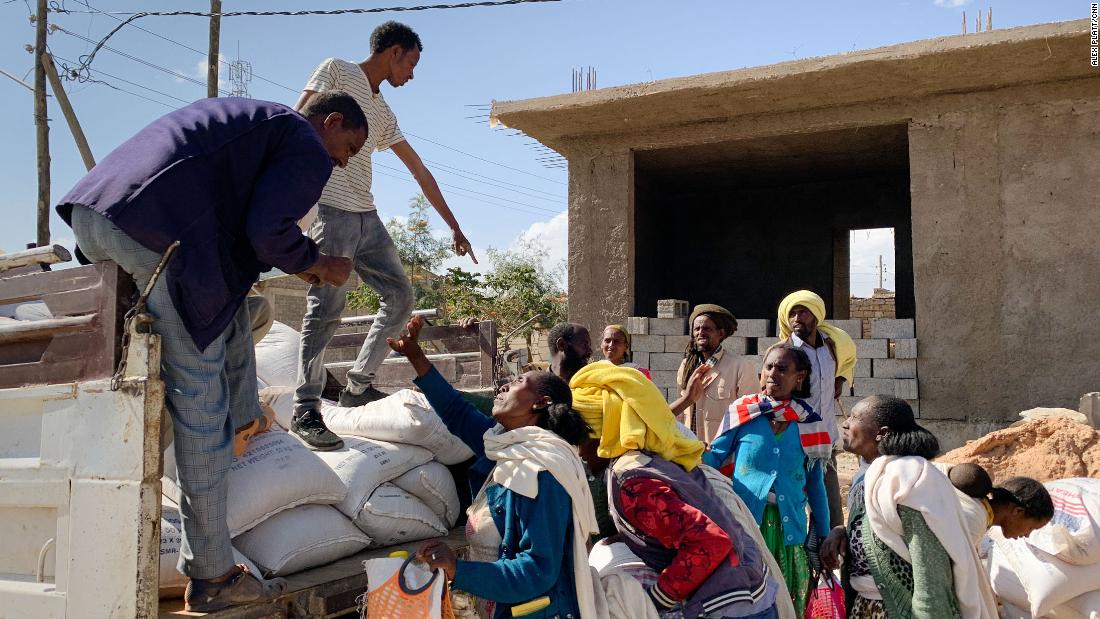US condemns ‘atrocities’ in Tigray and calls for those responsible to be ‘held to account’ after CNN investigation

In a statement on Saturday, US Secretary of State Antony Blinken demanded Eritrea and Ethiopia “take all necessary steps to ensure that their forces in Tigray cease and desist this reprehensible conduct.””The continued presence of Eritrean forces in Tigray further undermines Ethiopia’s stability and national unity. We again call upon the Government of Eritrea to remove its forces from Tigray,” Blinken added. Blinken — who has repeatedly called for the withdrawal of Eritrean and Ethiopian regional forces from the Tigray region, unfettered humanitarian access and an independent investigation into the human rights abuses being committed — also called Saturday for a cease in violence to allow for humanitarian assistance for those suffering. “The United States condemns the conduct of forces that continue to carry out atrocities and hinder the distribution of critical humanitarian assistance in Tigray. Those responsible must be held to account,” Blinked said on Twitter Saturday.In the investigation published Wednesday, a CNN team witnessed soldiers from neighboring Eritrea, some disguising themselves in old Ethiopian military uniforms, manning checkpoints in Tigray, obstructing and occupying critical aid routes, and roaming the halls of one of the region’s few operating hospitals and threatening medical staff.Following the publication of CNN’s investigation, the United Nations confirmed Wednesday that the “blockades by military forces” had severely impeded the ability for assistance to reach rural areas where the humanitarian crisis is worst.Blinken’s statement comes after the top Republican on the House Foreign Affairs Committee this week called on the Biden administration to enact sanctions in response to the ongoing human rights abuses in the region.Texas Rep. Michael McCaul told CNN on Thursday that “there have been ample, credible reports from human rights groups and journalists on the continuing presence of Eritrean troops, and reports that have implicated them, and other armed actors, in human rights abuses, rape and other atrocities.””It is clear that the Government of Ethiopia and the Government of Eritrea have not upheld their public commitment to withdraw Eritrean forces out of Tigray. Now we have this on-camera evidence from CNN.”McCaul and Rep. Gregory Meeks, the New York Democrat who’s chair of the House Foreign Affairs Committee, have been leading a continued push for the Biden administration to “urgently use all available tools, including sanctions and other restrictive measures, to hold all perpetrators accountable and bring an end to this conflict.”Thousands of civilians are believed to have been killed since Ethiopian Prime Minister Abiy Ahmed launched a military operation in November against the region’s ruling party, the Tigray People’s Liberation Front. CNN has investigated some of the reports of atrocities emerging from the region, including mass killings and widespread sexual violence by Ethiopian and Eritrean forces. The months-long conflict, which could potentially destabilize the wider Horn of Africa region, bears the hallmarks of genocide.He has spoken several times with Abiy about the crisis, most recently last month to press Ethiopia and Eritrea to make good on commitments to withdraw Eritrean troops “immediately, in full and in a verifiable manner.”Amid the humanitarian crisis, the State Department dispatched its special envoy for the Horn of Africa, Jeff Feltman, to the region this month. Feltman traveled to Egypt, Eritrea, Ethiopia and Sudan in early May, meeting with government officials, the UN and the African Union. He is scheduled to brief the Senate Foreign Relations Committee behind closed doors next week.The US has sent millions in additional funds to Tigray to assist in responding to the humanitarian crisis and has deployed a US Agency for International Development disaster assistance response team to the region.CNN’s Jennifer Hansler, Veronica Stracqualursi, Barbara Arvanitidis, Eliza Mackintosh and Rachel Janfaza contributed to this report.







